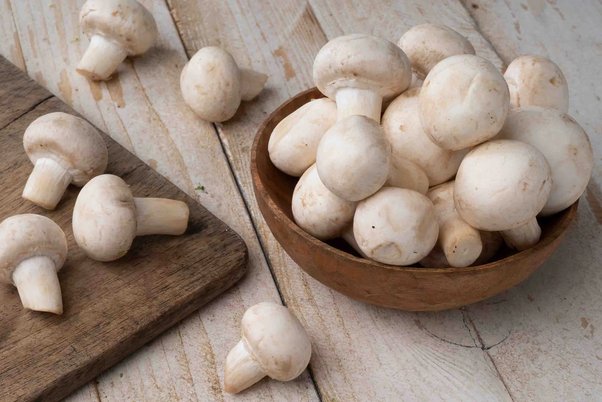Unlocking the Nutritional Potential: Protein in Mushrooms and Its Health Benefits
Mushrooms, often celebrated for their unique flavor and texture, offer more than meets the eye. In this article, we delve into the nutritional treasure hidden within mushrooms—protein. As a vital component of a balanced diet, protein in mushrooms deserves closer exploration to understand its benefits for overall health and well-being.

The Protein Power of Mushrooms
When it comes to protein sources, mushrooms might not be the first to come to mind, but their protein content is nothing short of impressive. Rich in nutrients, mushrooms provide a valuable plant-based protein that can enhance various diets. As we uncover the protein within these fungi, we begin to appreciate their potential contribution to our daily protein intake.
Mushroom Varieties and Their Protein Content
Not all mushrooms are created equal in terms of protein content. Different varieties boast varying levels of protein, presenting options for individuals seeking specific protein targets. Varieties like shiitake, oyster, and portobello stand out as notable contenders in the realm of mushroom protein. Exploring these varieties allows us to tailor our dietary choices to our nutritional goals.
Health Benefits of Mushroom Protein
The benefits of mushroom protein extend beyond mere macronutrient content. Mushrooms, being low in calories and high in antioxidants, offer a unique blend of nutrients that support immune function, cardiovascular health, and even weight management. Incorporating mushroom protein into your meals is not just about meeting protein goals—it’s about nurturing your overall well-being.
Protein Quality in Mushrooms
While mushrooms provide protein, it’s essential to understand its quality. Mushrooms contain all the essential amino acids, making them a complete protein source. Their amino acid profile supports various bodily functions, including muscle repair and hormone synthesis. Comparing mushroom protein quality to other plant and animal sources highlights its potential as a nutritious dietary component.
Incorporating Mushroom Protein in Various Diets
Mushroom protein’s versatility shines as it seamlessly integrates into different dietary preferences. For vegetarians and vegans, mushrooms offer a satisfying and nutritious protein source. Meat-eaters can also benefit from incorporating mushroom protein into their diets to diversify their protein intake. With mushrooms, dietary restrictions need not limit protein options.
Mushroom Protein and Weight Management
Managing weight is a common health goal, and mushroom protein can play a strategic role. The combination of protein’s satiety-inducing effects and the low calorie content of mushrooms makes them an ideal choice for those aiming to shed pounds or maintain a healthy weight. Including mushrooms in your meals can help you feel fuller for longer, supporting portion control.
Cooking and Maximizing Protein in Mushrooms
Preparing mushrooms to retain their protein content requires careful cooking techniques. Gentle cooking methods like sautéing, roasting, or grilling help preserve the nutrients. Avoid overcooking, which may lead to nutrient loss. Pairing mushrooms with protein-rich ingredients can create well-rounded, nutritious meals that optimize the benefits of mushroom protein.
Potential Health Considerations and Allergies
While mushrooms offer an array of health benefits, it’s essential to note potential allergens and sensitivities. Individuals with allergies to mushrooms should exercise caution, and consulting a healthcare professional is crucial. Additionally, moderation is key, as excessive consumption of any food, including mushrooms, should be balanced with a varied diet.
Mushroom Protein Recipes and Meal Ideas
Putting theory into practice, explore a collection of mushroom protein-rich recipes and meal ideas. From hearty mushroom stir-fries to protein-packed mushroom and quinoa salads, these recipes inspire culinary creativity while ensuring you reap the nutritional rewards of mushroom protein.
Frequently Asked Questions (FAQs) About Protein in Mushrooms
Q1: How much protein do mushrooms contain?
A1: The protein content in mushrooms varies by type. On average, a cup of sliced mushrooms provides about 2-3 grams of protein.
Q2: Can mushrooms be considered a significant protein source?
A2: While not as high in protein as animal products, mushrooms can be a valuable plant-based protein source that contributes to a balanced diet.
Q3: Are all mushroom varieties equal in protein content?
A3: Different mushroom varieties offer varying protein levels. Some, like shiitake and oyster mushrooms, have higher protein content compared to others.
Q4: How does mushroom protein compare to meat-based protein?
A4: Mushroom protein is lean and low in calories, making it a favorable option for those seeking a plant-based protein alternative to meat.
Q5: What are the additional nutritional benefits of mushroom protein?
A5: Mushrooms provide essential nutrients like vitamins, minerals, and antioxidants, complementing their protein content for overall health.
Q6: Can mushroom protein help with muscle building?
A6: Mushroom protein contains essential amino acids that support muscle repair and growth. However, a balanced diet with varied protein sources is essential for optimal muscle building.
Q7: Are there any cooking methods that preserve mushroom protein?
A7: Gentle cooking methods like sautéing, roasting, or grilling help retain mushroom protein’s nutritional value while enhancing its flavor.
Q8: Is mushroom protein suitable for vegetarians and vegans?
A8: Yes, mushroom protein is an excellent option for vegetarians and vegans to meet their protein needs while enjoying a plant-based diet.
Q9: Can mushroom protein aid in weight loss?
A9: Mushroom protein’s combination of satiety and low-calorie content can contribute to feelings of fullness, supporting weight management goals.
Q10: Are there any allergies associated with mushroom consumption?
A10: While mushroom allergies are rare, individuals with allergies to other fungi or molds should exercise caution. Consulting a healthcare professional is advisable if you have concerns.
Conclusion
Protein in mushrooms is more than a dietary component—it’s a gateway to nutritional diversity and overall health. By understanding the potential of mushrooms as a protein source, we open the door to a world of delicious, nutritious possibilities. As we incorporate mushroom protein into our diets, we nourish our bodies, support our well-being, and savor every bite of culinary exploration.




